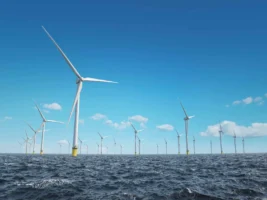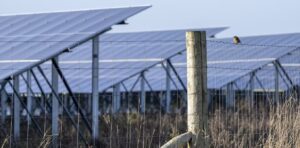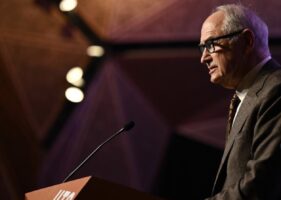The Team Arrow racing team, which has competed in three Solar Challenges, is developing a solar car that will be registered to drive on Australian roads. The Brisbane-based solar racing team is currently evaluating the level of interest in its prototype ‘commercial’ solar car that it plans to have completed and road registered by the second half of 2017.
With a 300km range on the open road and more than 1000km at speeds between 50km and 70km/h, the Team Arrow two-seater solar car could make a significant statement amount the potential of solar-powered transport.
While team president Rob Mair acknowledges that solar cars are likely impractical for many drivers today, the project demonstrates the potential of solar, storage and e-mobility in the future.
“These things are real cars that can do real highway speeds, and this is just the beginning,” says Mair. “We don’t know where things will go, so we’re keen to simply make one and see where the technology goes.”
Team Arrow is sponsored by the Australian-Chinese mounting system and inverter supplier Clenergy and was initiated by Brisbane-based IT and software developer Integral. It has competed in three Solar Challenge races since 2013, including the 2015 Abu Dhabi Challenge where it achieved its highest placing, finishing in fifth.
Rob Mair says that the team is drawing on the design and technology it has deployed in its 230kg solar racer, for its ‘street legal’ model, which should come in at a weight between 400kg – 500kg.
Much of the additional weight comes from modifications required for road registration, as advised by Queensland licensing authorities, with whom Team Arrow engineers have been working.
Given the extra weight when compared with the single-seater racing vehicle, the optimal speed at which the solar car can power itself using sunlight without significantly draining the batteries should be somewhere between 50km – 70km. This makes the commercial solar car ideal for city driving. However, it will require charging when driving on the open road.
“It is really aimed more at a city car rather than doing long distance highway driving,” explains Mair. “From what I can imagine, 60km/h can be sustained in one of these cruiser-class cars, but you don’t want to do that on the highway even if you’re traveling long distances for free.”
The current Team Arrow racer has a carbon fiber body, with aluminum suspension and 22.5% monocrystalline solar cells encapsulated in a specialist transparent film. Super-high-efficiency gallium arsenide solar cells can be used, however, they remain prohibitively expensive at present.
Lithium-ion batteries are deployed to store the electricity produced by the solar cells, although Mair notes that the battery capacity does not need to approach that of more standard electric cars, given the solar car’s lightweight design and aerodynamics.
“[Battery] cost for this is not such a huge thing,” Mair. “Because the cars are so efficient, a very big battery pack is not required. The battery pack for our first car was one-sixteenth the size of a Tesla pack.”
The Team Arrow engineers have not yet determined the exact battery required for the commercial model, but it will be sized to deliver the 300km highway range expected by drivers.
“I don’t actually see solar cells on cars being a solution to solar range anxiety,” says Mair. “Solar only really supplements the electricity required a small amount when traveling at high speeds, so city cars are a better fit [for solar].”
However, even the city use case may be problematic. A commuter could plausibly drive a solar car to work and then leave it to charge during the day, but high-rise or shaded carparks are common in cities.
Solar parking canopies and residential garages are themselves a potentially more efficient and cost-effective solution for charging electric cars, particularly if coupled with fast charging systems.
Nonetheless, Team Arrow is pushing forward with its plans, which it hopes will change the way people view solar cars and e-mobility more generally. And in pursuit of this goal, it is not alone.
Troubled Chinese thin film developer Hanergy launched plans for its solar powered car in July, although given the company’s rather spectacular fall from grace these plans are best taken with a large pinch of salt.
More plausibly, Germany’s Sono Motors is hoping to crowdfund the commercialization of its six-seater Sion family car; that targets a range of 250km at a price tag of less than €16,000 (AU$18,000).











